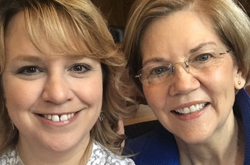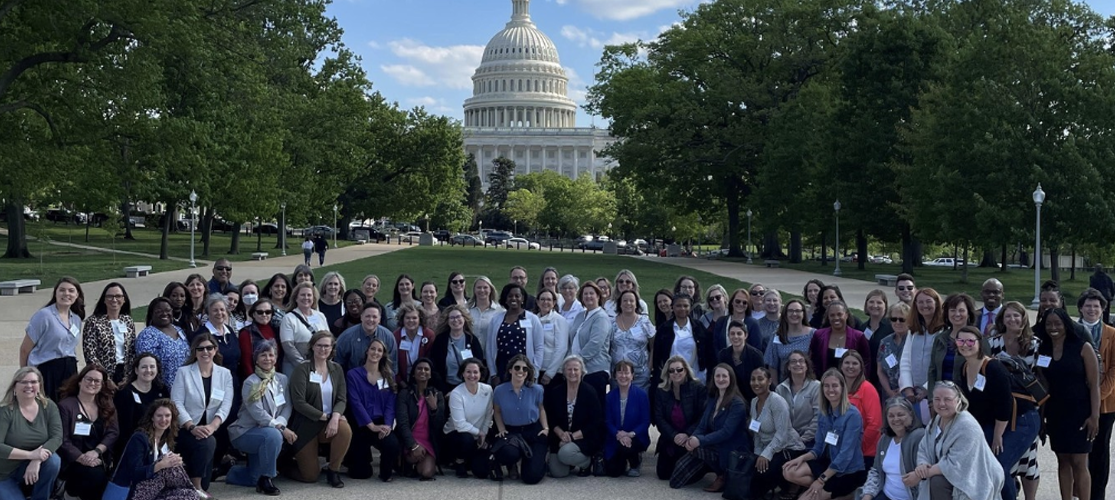Schedule a Meeting with Your Members of Congress
 Nurses are trusted health care experts. One way for you to affect change in the health care system is to become involved in advocacy. By speaking out on behalf of women and newborns, you can serve as a valuable source of information for your elected leaders and their staff.
Nurses are trusted health care experts. One way for you to affect change in the health care system is to become involved in advocacy. By speaking out on behalf of women and newborns, you can serve as a valuable source of information for your elected leaders and their staff.
If you can’t get to Washington DC, you can – and should – still participate in the legislative process. Members of Congress return to their states and districts regularly. In general, they leave Washington, DC for religious and federal holidays, as well as during the month of August. Regardless of the location, a face-to-face meeting makes your issue more memorable. Remember, you can make a difference!
1. Before You Begin
- Identify your elected officials by visiting the AWHONN Legislative Action Center. Select Elected Officials Lookup and enter your details.
- Visit the individual web pages of your members of Congress for a list of all of their offices. Identify the office location that is best suited to your needs and call it. Identify yourself as a constituent and a nurse, and ask to speak to the scheduler to set-up a meeting.
- Once connected to the scheduler, again identify yourself as a constituent and a nurse, and say that you would like to request a meeting with the member of Congress to discuss “XYZ.” Keep your request to one specific issue (e.g., maternal mortality).
- Consider going to the meeting with a small team of nurses or other health care experts to better drive home your key messages.
2. Prepare for the Meeting
- Once you have scheduled an appointment, please contact advocacy@awhonn.org for talking points and the most up-to-date status on legislation.
- Browse your elected official’s website. It will feature key policy initiatives, a biography, committee assignments, and recent speeches.
3. At the Meeting
Members of Congress have very full schedules. Keep in mind:
- If you are even a few minutes late, you may miss an opportunity to meet. Plan to arrive 5 – 10 minutes early.
- You will likely have no more than 15 minutes. Be polite and succinct.
Schedules change. Be flexible. - You may meet with an aide. This is fairly common; do not be disappointed. These aides are experts in their respective fields and advise the legislator on how to vote.
- Bring your business card to the meeting. Exchange cards with each of the meeting participants.
- Remember to use stories from your experience with patients to highlight your key messages.
- If you are asked a question and you do not know the answer, it is best to say, “I don’t know, but I will find out and get back to you.”
- Ask if the legislator is hosting any nearby round tables on health care issues or town hall forums. Consider attending.
- Don’t be shy. Ask to take a photo with the elected official to share on social media.
4. After the Meeting
- Follow up after the meeting with a quick email, thanking the participants for their time. Offer yourself as a resource in the future.
- Maintain the relationship with the legislator by attending town hall meetings or other forums where you will have an opportunity to interact.
- Consider a follow-up meeting(s).






















